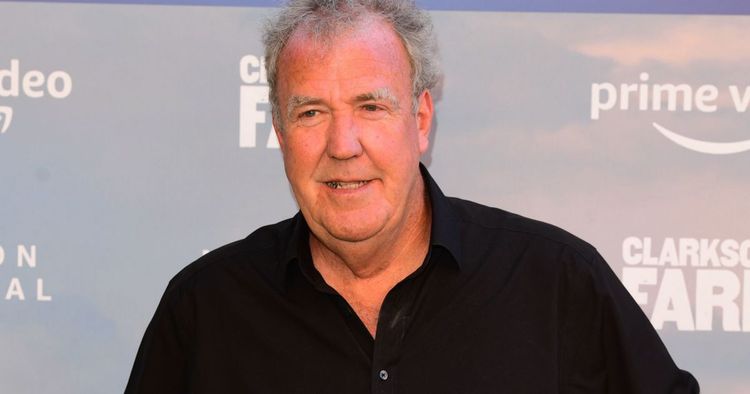TV presenter Jeremy Clarkson has said that he was ‘possibly days from death’ after a health episode caused by coronary artery disease. The Clarkson’s Farm and Grand Tour presenter spoke in his column in The Sunday Times about the frightening episode which saw him undergo emergency surgery.
The 64-year-old former Top Gear host said he was suffering from blocked arteries near his heart and described the symptoms. Coronary heart and artery disease exhibit the same red flags and doctors have said that people should seek medical help if they are seen.
In his column Jeremy said how a swim while on holiday in the Indian Ocean appeared to cause him difficulties using the stairs, which when he returned home meant a “sudden deterioration began to gather pace”.
He says he had symptoms of being “clammy”, with a “tightness in my chest”, and “pins and needles in my left arm”, and after hearing the news of former Scottish first minister Alex Salmond’s fatal heart attack, he decided to go to see his doctor.
Clarkson says he went to the John Radcliffe Hospital in Oxford via an ambulance, where a heart attack was ruled out after he had an electrocardiogram (ECG), blood tests and X-rays. He said he then went to an “operating theatre”, after further checks, and doctors said he was perhaps “days away” from getting very ill.
Clarkson said: “It seems that of the arteries feeding my heart with nourishing blood, one was completely blocked and the second of three was heading that way.” He said a stent, which can save lives and stop future heart attacks through improving blood flow to the heart, was fitted in around two hours.
The motoring journalist said: “It wasn’t especially painful. Just odd,” and added that he has been thinking: “Crikey, that was close.” Clarkson concluded saying he was “wondering what water tastes like and if it’s possible to make celery interesting” following the health scare, as he seemed to consider lessening his meat intake.
On the urgency of his condition he added: "And after coming out of that, I was off to the operating theatre. Because my bankruptcy was most definitely just around the corner. Days away? “Maybe,” he said."
He has previously revealed he had to quit smoking after contracting pneumonia on holiday in Spain. On the operation the NHS says: “A coronary angioplasty is a procedure used to widen blocked or narrowed coronary arteries (the main blood vessels supplying the heart).
“The term “angioplasty” means using a balloon to stretch open a narrowed or blocked artery. However, most modern angioplasty procedures also involve inserting a short wire mesh tube, called a stent, into the artery during the procedure. The stent is left in place permanently to allow blood to flow more freely.
“Coronary angioplasty is sometimes known as percutaneous transluminal coronary angioplasty (PTCA). The combination of coronary angioplasty with stenting is usually referred to as percutaneous coronary intervention (PCI).”
Symptoms of coronary heart disease (CHD)
The main symptoms of coronary heart disease are:
chest pain (angina) shortness of breath pain in your neck, shoulders, jaw or arms feeling faint feeling sick (nausea)But not everyone has the same symptoms and some people may not have any before coronary heart disease is diagnosed.
Coronary heart disease is the term that describes what happens when your heart’s blood supply is blocked or interrupted by a build-up of fatty substances in the coronary arteries. Over time, the walls of your arteries can become furred up with fatty deposits. This process is known as atherosclerosis and the fatty deposits are called atheroma.
Atherosclerosis can be caused by lifestyle factors, such as smoking and regularly drinking excessive amounts of alcohol. You’re also more at risk of getting atherosclerosis if you have conditions like high cholesterol, high blood pressure (hypertension) or diabetes.
Preventing coronary heart disease (CHD)You can reduce your risk of getting coronary heart disease by making some simple lifestyle changes.
These include:
eating a healthy, balanced diet being physically active giving up smoking controlling blood cholesterol and sugar levelsKeeping your heart healthy will also have other health benefits, such as helping reduce your risk of stroke and dementia.


















































